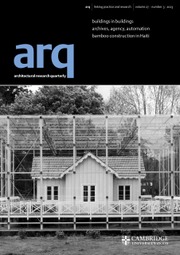No CrossRef data available.
Article contents
Grid effects
Published online by Cambridge University Press: 25 February 2009
Extract
Zaha Hadid's Kartal Pendik Masterplan (2006) for a new city centre on the east bank of Istanbul proposes the redevelopment of an abandoned industrial site located in a crucial infrastructural node between Europe and Asia as a connecting system between the neighbouring areas of Kartal in the west and Pendik in the east. The project is organised on what its architects call a soft grid, a flexible and adaptable grid that allows it to articulate connections and differences of form, density and use within the same spatial structure [1]. Its final overall design constitutes only one of the many possible configurations that the project may take in response to the demands of the different areas included in the masterplan, and is produced from a script that is able to generate both built volumes and open spaces, skyscrapers as well as parks. The soft grid in fact produces a ‘becoming’ rather than a finite and definitive form: its surface space does not look like a grid, but is derived from a grid operation which is best explained by the project presentation in video animation. The grid here is a process of ‘gridding’, enacted according to ancient choreographed linear movements of measuring, defining, adjusting, reconnecting spaces through an articulated surface rather than superimposed on an ignored given like an indifferent colonising carpet.
- Type
- theory
- Information
- Copyright
- Copyright © Cambridge University Press 2008




